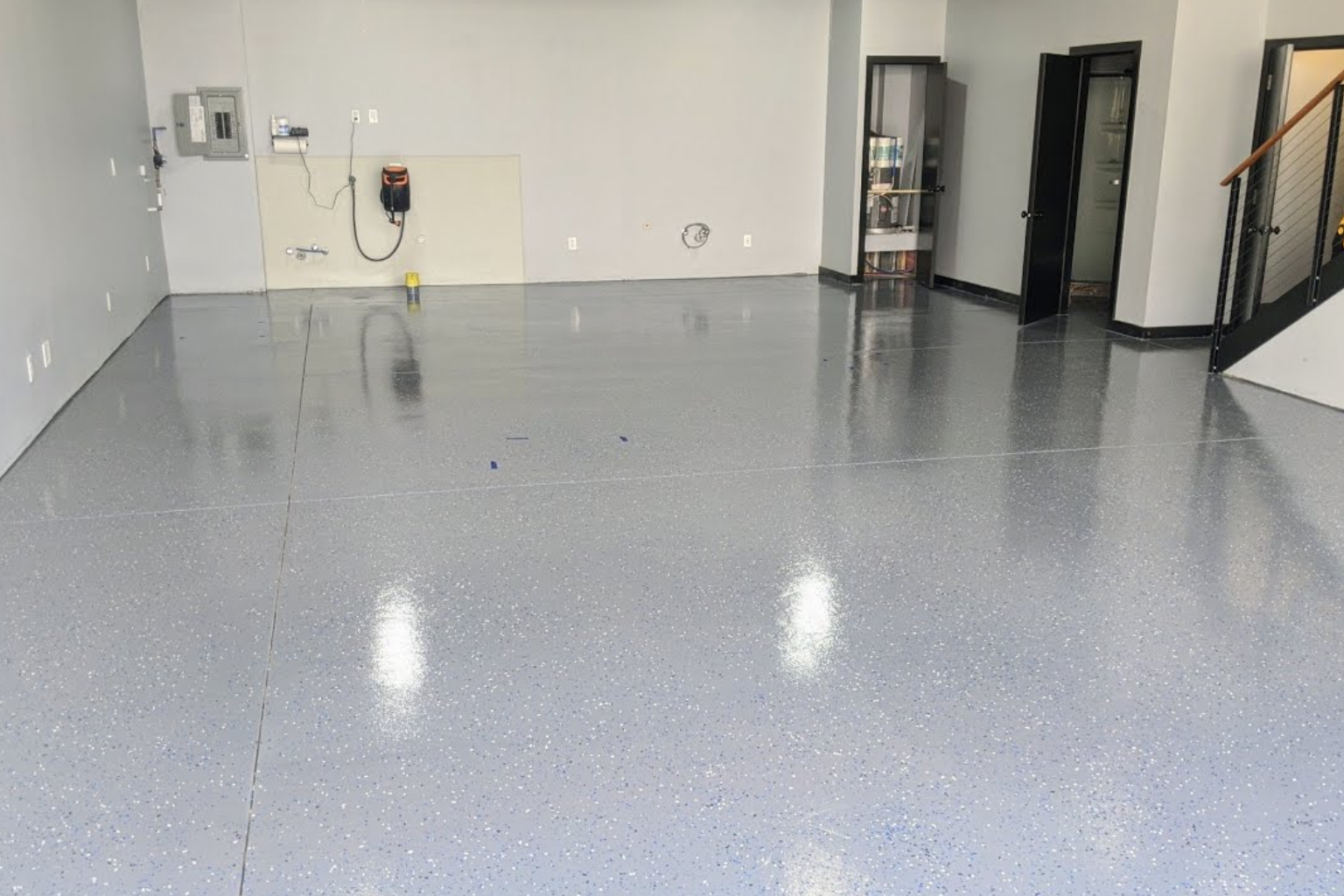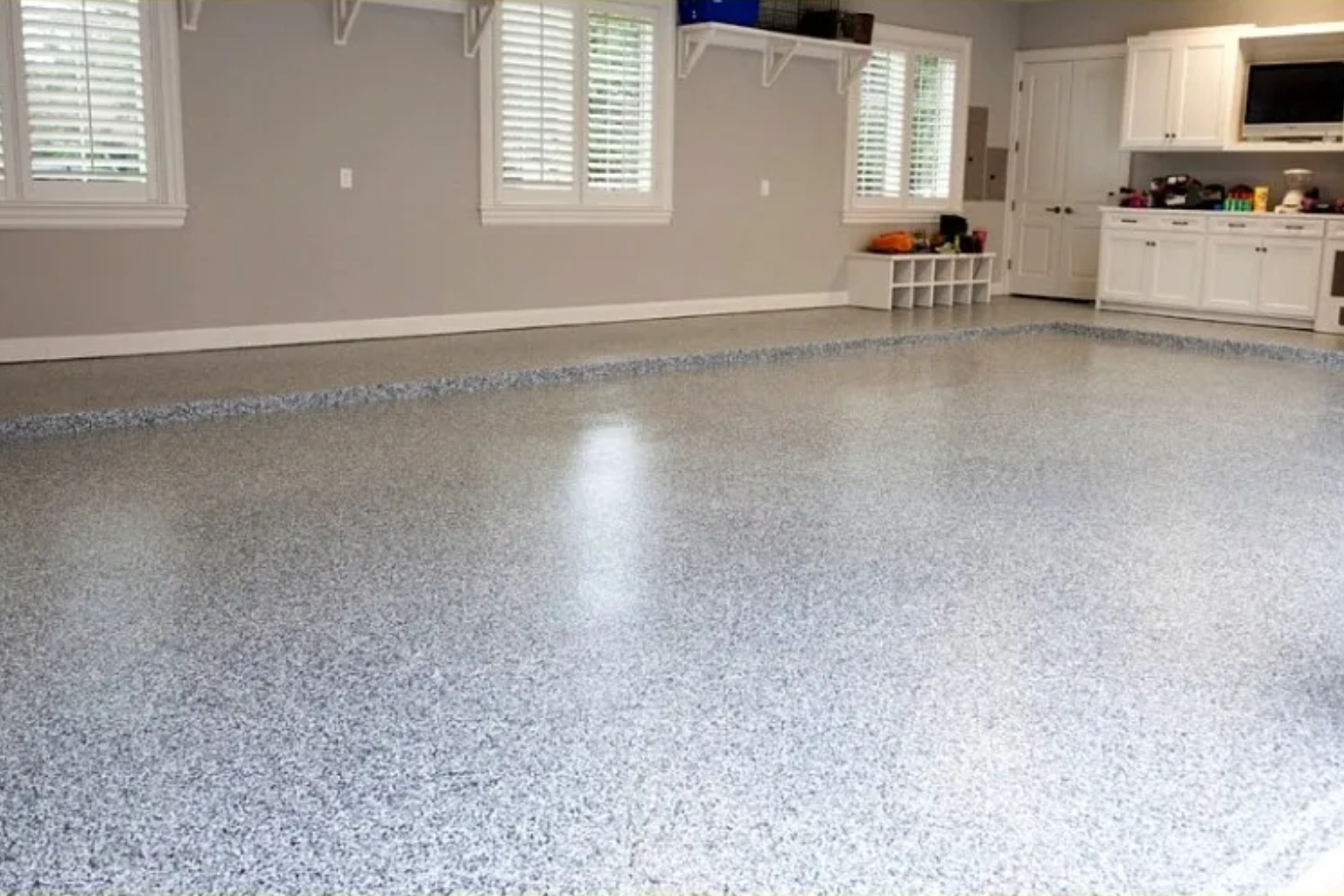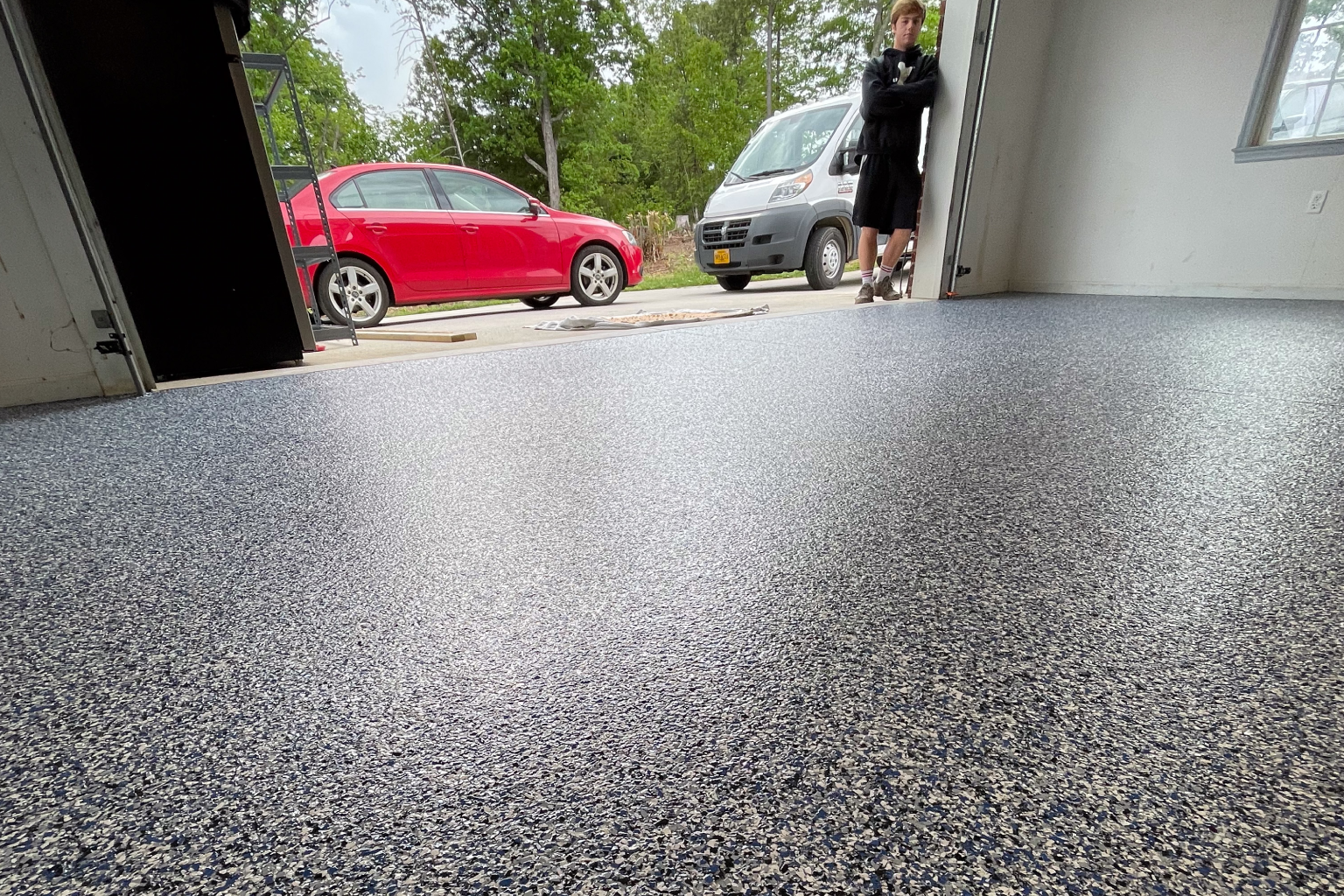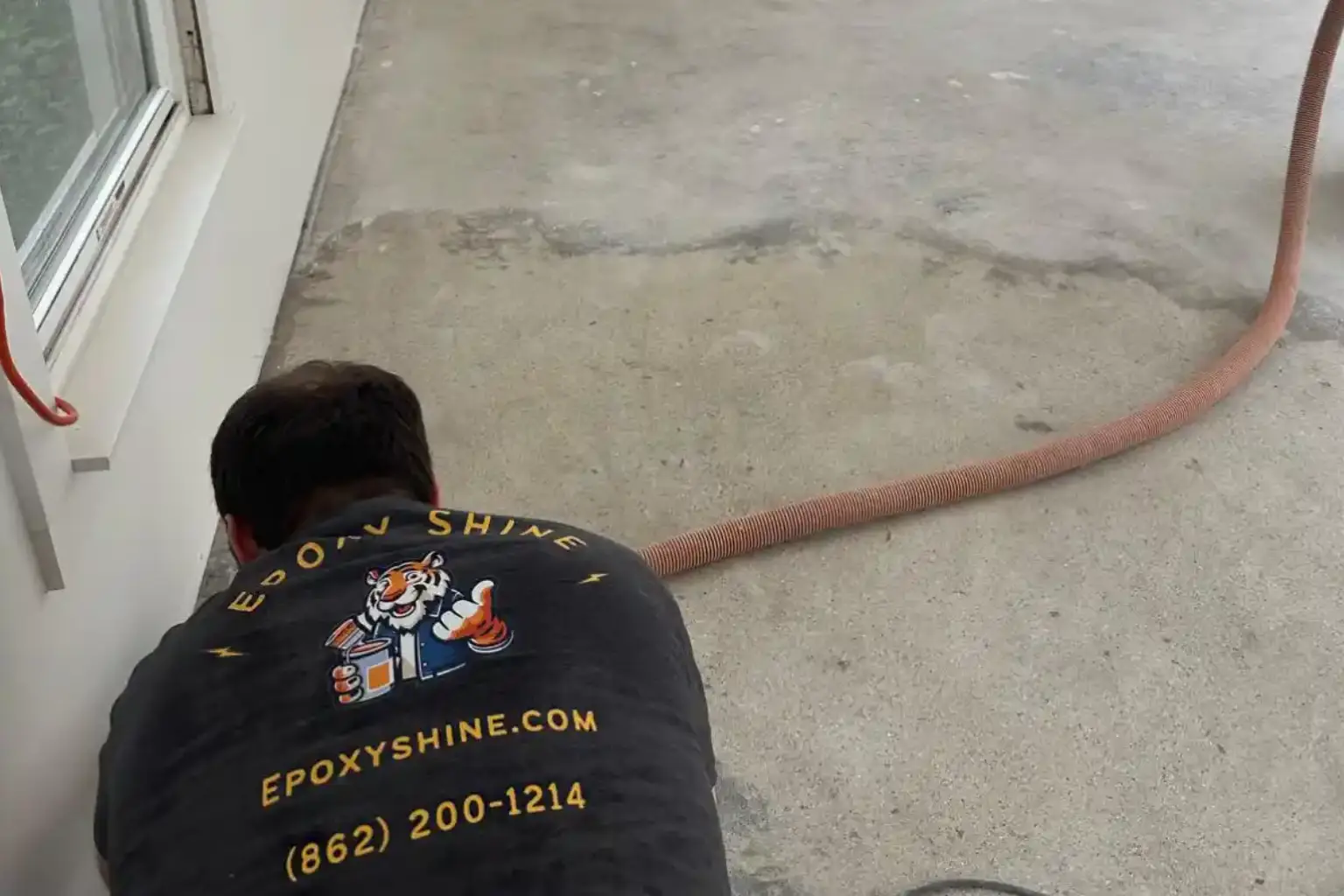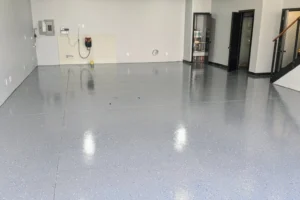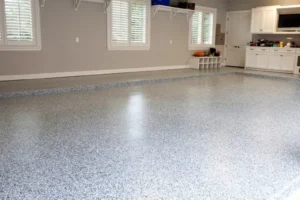It can be concerning to see cracks in the floor of your garage, but not all the cracks are equal. Some are harmless, and those that may indicate serious problems require urgent maintenance. A concrete garage floor naturally faces stress loads, temperature fluctuations, and is subject to wear and tear, thus acquiring cracks of various characteristics.
Being aware of the time to take action and the ability to repair concrete floor cracks can save you money in the future. This guide explains causes, solutions, and prevention, plus when to seek expert help.
Why Do Cracks in Garage Floor Happen?
The cracks in concrete garage floor are quite normal and may occur with time. They may be minor and harmless or severe and destructive. Identifying the key causes can help determine when a particular issue requires repair.
- As the new concrete dries, it contracts naturally and forms fine lines. These hairline garage floor cracks are normal and usually not dangerous. Water and dirt can be kept out by sealing them.
- The concrete garage floor is known to expand and contract due to heat and cold, respectively. The occurrence of this push and pull causes stress, which results in cracks. Extremely seasoned areas tend to have more cracks.
- The slab is loaded with vehicles, storage cabinets, or machinery. With time, this pressure may lead to deep cracks in garage floor. Weakly reinforced floors tend to crack more.
- Slab water weakens the foundation. When the ground moves, the concrete garage floor begins to crack. Moisture cracks may expand quickly in case they are not repaired.
- The soil under your garage can move or settle unevenly. This movement puts a strain on the slab, which leads to cracks in the garage floor. Such cracks tend to deteriorate without expert repairs.
When Should You Worry About Garage Floor Cracks?
Not all cracks in garage floor are serious, but some need quick attention. Understanding the difference helps you avoid bigger damage. Here are the main types of cracks and what they mean.
Hairline Cracks
Hairline garage floor cracks are thin and usually harmless. They often appear as the concrete cures or ages. If you seal concrete floor early on, it’ll help protect your garage floor from moisture and dirt.
Wide Cracks (Over 1/8 Inch)
Wide cracks in garage floor are more serious and allow water to enter. Over time, water can damage the foundation and weaken the slab. These cracks need fast repair to stop further problems.
Uneven Cracks
Uneven garage floor cracks happen when one side of the slab rises higher than the other. This often signals soil movement or foundation stress. They are unsafe and require professional repair.
Expanding Cracks
Cracks that keep spreading or growing wider are red flags. These types of concrete garage floor cracks show that the problem is getting worse. Expert help is needed before the damage becomes costly. If you notice wide, uneven, or expanding garage floor cracks, it’s best to call professionals right away.
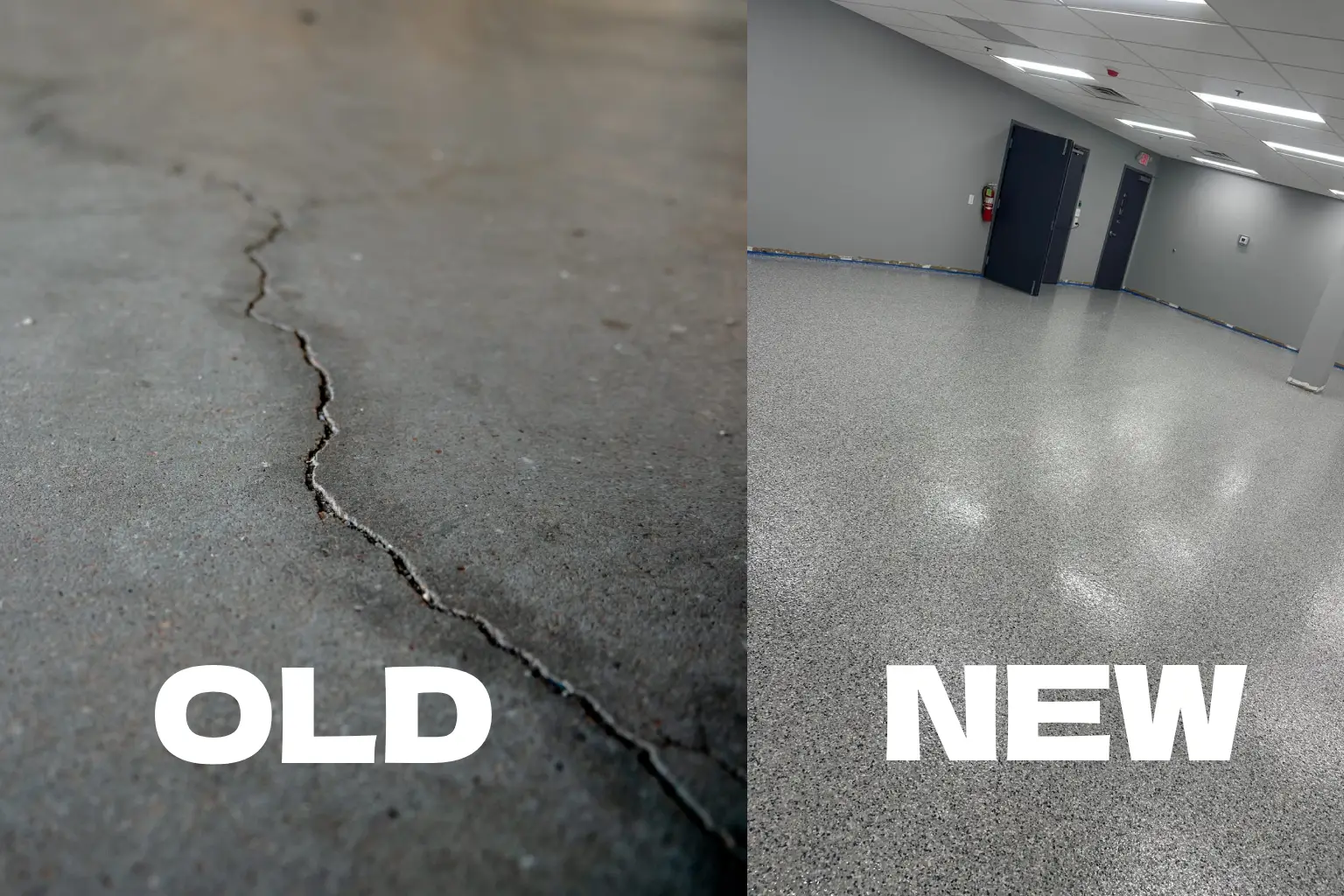
Garage Floor Crack Fix: Best Repair Methods
Not every crack needs the same repair. The right garage floor crack fix depends on the type and size of the crack. Here are the most effective methods:
- Hairline garage floor cracks can be sealed with epoxy or filler. This blocks water, dirt, and chemicals from entering. Sealing concrete also keeps your garage floor smooth and strong.
- Wide cracks in garage floor require patching compounds or epoxy fillers. These materials bond tightly with the slab for lasting repair. Professional treatment ensures the cracks don’t reopen.
- Uneven garage floor cracks can be leveled by grinding or resurfacing. If soil movement caused the issue, slab jacking or replacement may be necessary. These solutions restore safety and strength to your concrete garage floor.
- Moisture-related garage floor cracks need sealing with water-resistant coatings. This prevents future damage and keeps the slab dry. Epoxy coatings are often used for long-term protection.
Preventing Garage Floor Cracks in the Future
Prevention is always better than repair. By taking small steps, such as using polished concrete floors, you can keep your concrete garage floor strong and long-lasting. Here are the best ways to prevent cracks in garage floor:
Apply Epoxy Coating
A strong epoxy layer protects the surface from stains, chemicals, and moisture. It also adds durability to your garage epoxy floor. This coating is one of the best ways to avoid new garage floor cracks.
Improve Drainage
Water is a big cause of garage floor cracks. Make sure your garage has proper drainage to keep water away from the slab. This prevents soil weakening and protects your concrete garage floor.
Control Heavy Loads
Parking cars or keeping heavy equipment in one spot, especially on industrial floors, can stress the floor. Use mats or pads to spread the weight across the surface. This reduces pressure and prevents deep cracks in garage floor.
Maintain Consistent Temperature
Extreme heat and cold make concrete expand and shrink. This repeated movement leads to garage floor cracks over time. Insulating your garage helps keep the concrete garage floor stable.
Regular Inspections
Small cracks can be repaired easily if found early. Regularly check your concrete garage floor for changes. Fixing minor issues on time prevents bigger garage floor cracks later.
Why Professional Help Matters
DIY methods can work for very small cracks, especially when it comes to residential garage floors, but they often only cover the surface problem. If the cracks are wide, uneven, or caused by soil movement, you need expert care to ensure long-lasting results. Professionals don’t just fill the crack, they identify the root cause, whether it’s poor drainage, heavy loads, or shifting soil under your concrete garage floor.
By using high-quality materials and proven repair methods, experts ensure that your garage floor crack fix is strong, durable, and resistant to future damage. They can also apply protective epoxy coatings that not only seal and strengthen the surface but also improve the overall look of your garage. This protection helps prevent new cracks in garage floor, saving you money on costly repairs later.
Conclusion
Cracks in your garage floor may seem minor at first, but ignoring them can lead to costly problems. Knowing when to worry and choosing the right repair method keeps your concrete garage floor safe, durable, and attractive. Prevention through sealing, proper drainage, and professional care is key to long-lasting results.
Don’t wait until small cracks turn into major repairs. Protect your garage floor now. Reach out to Epoxy Shine and get expert repair and coating services you can trust.
FAQs
Should I be worried about cracks in my garage floor?
Not always. Small hairline cracks are usually harmless, but wide, uneven, or spreading cracks can signal deeper issues. In such cases, it’s important to get a professional inspection and repair before the damage worsens.
What causes garage floor cracks?
Garage floor cracks happen due to concrete shrinkage, heavy vehicle loads, temperature changes, water infiltration, or soil movement beneath the slab. Some cracks are normal, but others point to serious foundation or moisture problems.
What are the best repair methods for different types of cracks?
Hairline cracks can be sealed with epoxy or filler. Wider cracks need patching compounds or professional epoxy repair. Uneven cracks may require grinding, slab jacking, or even replacement if soil movement is involved.
What can be done to prevent cracks in the future?
Applying an epoxy coating, improving drainage, spreading heavy loads, and performing regular inspections all help prevent cracks. Professional sealing also ensures your garage floor stays durable and attractive for years.



